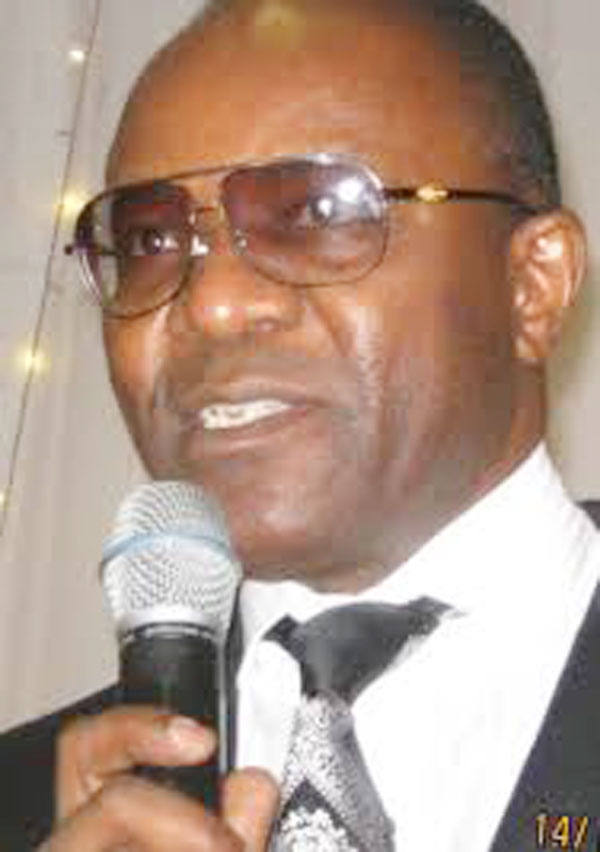There was renewed hope Tuesday that oil prices will begin to rise as the world’s top oil producers, Russia and Saudi Arabia, agreed to a production output freeze to tackle the oil glut, as long as other countries are ready to do the same.
Other producers such as Qatar and Venezuela have also expressed their readiness to keep oil production at January’s levels if other producers also do the same.
On Monday, the Minister of State for Petroleum Resources, Dr Ibe Kachikwu disclosed that there was increased conversation between Organisation of Petroleum Exporting Countries (OPEC) members towards ending the current over-supply of crude in order to raise the price of the commodity after it fell to record low levels.
True to Kachikwu’s prediction, OPEC top producer Saudi Arabia, which led other members on a philosophy to drive higher-cost producers out of the market by refusing to cut production despite a supply glut, has eventually agreed to stop product over-supply.
The agreement came after a meeting in Doha as OPEC and non-OPEC members are now desperate to curtail the market trend, following the drop of oil prices below $30 a barrel in recent months, representing about 70 per cent decline since 2014.
The report from Doha, however, said the challenge now would be to get other producing countries, including Iran, to toe the line as well.
Iran’s IRNA news agency said on Sunday that the country had exported its first crude shipment to Europe since it reached a landmark deal last year with world powers.
The country’s deputy oil minister, Rokneddin Javadi, was quoted by IRNA as saying the shipment, the first in five years, marked “a new chapter” in Iran’s oil industry.
Javadi said Iran has already reached an agreement to export oil to France, Russia and Spain.
The country said in January that it planned to add to its production, which stands at 3.1 million barrels per day (bpd) despite the drop in price, and should not be blamed for further price falls.
Meanwhile, Kachikwu had told Reuters in Abuja that the mood inside the OPEC is shifting from mistrust to a growing consensus that a decision must be reached on how to end the global oil price rout.
He said, “There’s increased conversation going on. I think when we met in December … they (OPEC members) were hardly talking to one another. Everyone was protecting their own positional logic.
“As you get closer to the statutory OPEC meeting date, you are going to see a lot more people get active in those conversations and try to find solutions,” he further stated.
However, apparently trying to urge countries impacted by oil price fall to be realistic in their expectation over the recent development, a former adviser to Iraq’s Ministry of Oil and former head of the Energy Studies Department, OPEC Secretariat, Saadallah al Fathi, told Al Jazeera that freezing output at January’s levels was not going to immediately cut supplies.
“There is already too much oil on the market; I don’t think freezing production is going to mean anything, unless other producers come into the picture. Within the next few weeks or few months, I think there will be a flurry of activities to get other producers on board,” Fathi said.
Oil Glut:OPEC, Non-OPEC unite as Russia, Saudi, Nigeria, others meet in Doha
Members of the Organisation of Petroleum Exporting Countries (OPEC) and non-OPEC producers may have decided to put their differences aside as top oil officials from Saudi Arabia, Russia and several key OPEC members, including Nigeria, met Tuesday for their highest-level discussion in months, a potentially pivotal sign that producers are at last preparing to tackle a devastating supply glut.
The talks in the Qatari capital Doha, which had been kept under wraps until recent days, involve powerful Saudi oil minister Ali al-Naimi and his Russian counterpart Alexander Novak, sources said, two figures who must reach an accord for any coordinated global action to hold any hope of success, according to reports by Reuters.
They will be joined by Venezuela’s oil minister Eulogio Del Pino, who has in recent weeks been visiting major oil producers to rally support for the idea of “freezing” production at current levels in an effort to halt a downward spiral in prices, sources have said.
Also expected to attend is the oil minister of Qatar, which holds the rotating presidency of OPEC this year, an important role in coordinating consultations among members and suggestions for extraordinary meetings of the group.
The agenda for Tuesday’s meeting was unclear, and the sources declined to provide any further details on it. Del Pino made no comment on Monday when he arrived in Qatar.
The meeting comes after more than 18 months of declining oil prices, knocking prices below $30 a barrel for the first time in over a decade. The slump has been longer and deeper than anyone predicted, and the mood may be shifting among producers which until now have been determined to defend market share rather than prices.
Within OPEC, there is a growing consensus that a decision must be reached on how to prop up prices, Nigerian oil minister Emmanuel Ibe Kachikwu told Reuters in an interview late last week, revealing that he too would be travelling to Doha to meet with his Saudi and Qatari counterparts.
Much has changed since the group’s fractious meeting in early December, the last big gathering of key oil ministers, when members “were hardly talking to one another,” according to Kachikwu.
Oil traders are on heightened alert for any sign of action. U.S. crude rose more than 3 per cent early yesterday to trade back above $30 a barrel, building on last Friday’s more-than-12-percent surge amid growing speculation over a deal.
While Venezuela has been by far the hardest-hit of any big producer, oil below $30 a barrel is a fraction of what Russia needs to balance its budget as it heads towards parliamentary elections later this year. Saudi finances are also suffering badly, running a $98 billion budget deficit last year, which it seeks to trim this year. Analysts cautioned that it was too soon to expect a sudden breakthrough, after a year and a half of tumbling oil prices.
Saudi Arabia has given no sign of wavering in its view that it would only cut in concert with other producers; Russia has been resolute that it cannot and will not cut back. And Iran is only now restoring exports after years of sanctions. Yet the small, hush-hush nature of the meeting is sure to evoke memories of the secret talks of the late 1990s that eventually revived $10 oil.
A series of sessions from Amsterdam to Madrid, brokered by Mexico, helped heal a rift between Saudi Arabia and Venezuela, restoring OPEC’s ability to work together. Jan Stuart, global energy economist at Credit Suisse, said it was too early to suggest yesterday’s meeting in Doha would lead to action, but noted Naimi’s attendance was significant.
How Diezani approved multi-million dollar crude oil swap – Ex-NNPC GMD
The former group managing director of Nigerian National Petroleum Corporation (NNPC), Engr. Austin Oniwon, Tuesday told the House of Representatives ad hoc committee investigating the crude oil swap between NNPC, PPMC and some oil companies that he obtained approval for the award of the contract from the former minister of petroleum resources, Mrs Diezani Alison-Madueke
Engr Oniwon informed the committee that Alison-Madueke gave the approval for the trading of the 445,000 barrel per day of crude allocated to the refineries, adding that only 150,000bpd were approved for the oil swap deal.
Crude oil amounting to 445,000 barrels per day was awarded to nine companies, including, Sahara Group, Aiteo, Duke Oil, Mercuria, Glencore, Etena Oil and Gas, Tranfigura, and Ontario Oil and Gas in the contract.
The Nigerian Extractive Industries Transparency Initiative (NEITI), in its 2009-2011 and 2012 separate reports, had raised alarm that the nation lost $8 billion due to discrepancy between the value of the crude oil lifted and the refined products delivered back to the country.
During his presentation, Oniwon said NNPC did not need the approval of the Federal Executive Council (FEC) to enter into agreement because Alison-Madueke had approved it. He however acknowledged that his approval threshold as GMD was $10 million while that of the minister was $100 million.
“We did not require FEC approval. The approval was obtained from the minister to do this business.”
The former GMD further disclosed that when he assumed duty, NNPC was ’insolvent’ as declared by the then minister of state for finance, Remi Babalola, adding that the corporation had a debt of over $3 billion hanging on its neck, and that it was due to the debt burden that the NNPC deployed the cashless policy of product exchange in order to offset the debt.
“Our cash flow was in trouble and we couldn’t service the Federation Account and our suppliers. As a management, when you are cash-strapped, you look for a cashless system available. The corporation paid for the 445,000bpd crude oil for the refineries, out of which 150,000bpd was approved for swap arrangement,” he noted.
-Leadership













